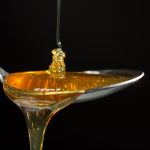
This review of the use of honey to educe the severity of radio/chemotherapy-induced oral mucositis identified 7 low quality RCTs that suggest that use of honey may reduce the severity of oral mucositis.
[read the full story...]
This review of the use of honey to educe the severity of radio/chemotherapy-induced oral mucositis identified 7 low quality RCTs that suggest that use of honey may reduce the severity of oral mucositis.
[read the full story...]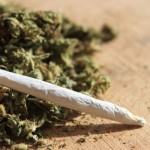
9 case-controlled studies were included in this review of the effect of marijuana use on head and neck cancer. The findings suggest no association marijuana use and head and neck cancer but other reviews suggest that this may differ by tumour site
[read the full story...]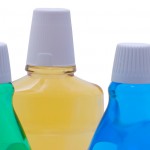
This study from the INHANCE collaboration pooled data from 12 case-controlled studies. Long-term use (35 yrs) of mouthwash was associated with an increase risk OR=1.15 (95%CI; 1.01 to 1.30) of head and neck cancer but with regular (>2 x daily), long-term (>35 years) use OR = 1.75 (95%CI; 1.25 to 2.48).
[read the full story...]
This review includes 11 case-controlled and 4 cohort studies and suggests a 37% reduction of oral cancer risk in high coffee drinkers compared with low or no coffee drinkers OR= 0.63 (95%CI; 0.52 – 0.75)
[read the full story...]
The International Head and Neck Cancer Epidemiology (INHANCE) consortium is a collaboration of research groups leading large epidemiology studies to improve the understanding of the causes and mechanisms of head and neck cancer. This overview paper provides a summary their findings over the past decade.
[read the full story...]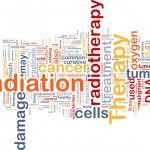
12 trials were included in this Cochrane review of molecularly targeted therapies and immunotherapies as adjuncts to standard treatments for oral cancer. Moderate evidence was found that standard therapy plus epidermal growth factor receptor monoclonal antibody (EGFR mAb) reduced mortality and locoregional failures.
[read the full story...]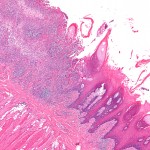
This diagnostic review compared two computer aided adjunctive tests for oral cancer. Oral CDX and DNA-image cytometry. The results suggest that DNA-image cytometry has a highly significant potential over OralCDx brush biopsy as an accurate and simple diagnostic tool for clinically suspected oral precancer and oral cancer.
[read the full story...]
This review of the malignant transformation rate of oral leukoplakia included 24 studies, the majority of which were retrospective. The range of malignant transformation was between 0.13% and 34.0%. The quality of the available data was limited and there is a need for higher quality well-reported studies.
[read the full story...]
This Cochrane review of adjunctive diagnostic tests for oral cancer included 41 studies assessing vital staining, cytology, and light-based tests. The available studies were of poor quality detection with none of the tests being considered as a replacement for the currently used standard of a scalpel biopsy and histological assessment.
[read the full story...]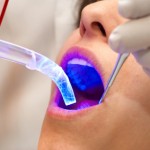
This review of photodynamic therapy (PDT) for oral premalignant lesions only identified a small number of poor quality studies that provide insufficient evidence for the effectiveness of PDT for the management of oral premalignant lesions.
[read the full story...]